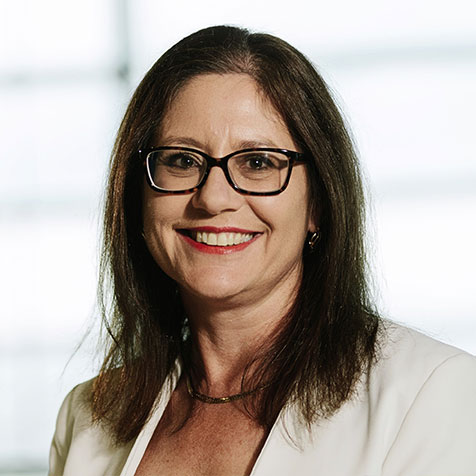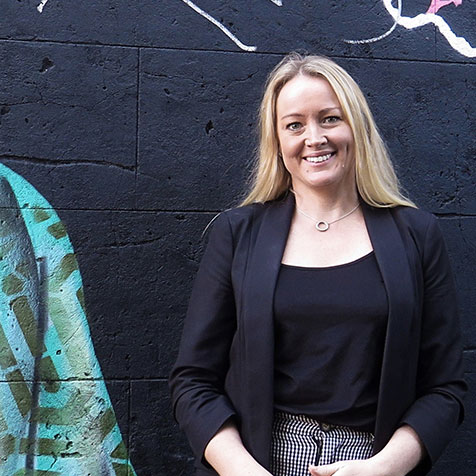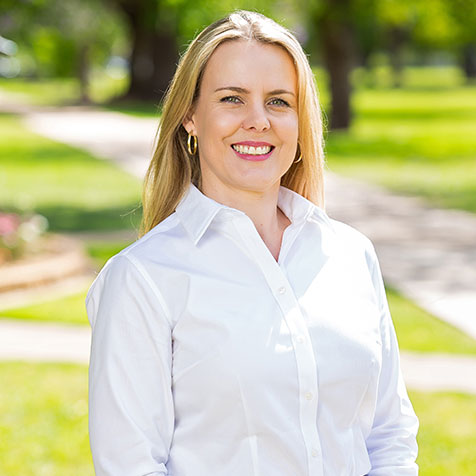Loading component...
At a glance
- Having a point of difference and a brand known for specialist expertise is crucial to retaining clients and driving growth in a competitive market.
- Outsourcing non-core, labour-intensive activities and automating some lower-level jobs can create greater cost efficiencies and opportunities for accountants to specialise.
“Jack of all trades” used to be a compliment for a person with knowledge about a bit of everything. However, as we move into the future, it is specialisation that looks more likely to ensure business success.
CPA Australia’s MY FIRM. MY FUTURE. report has found that 64.2 per cent of consumers and 65.3 per cent of small and medium-sized enterprises (SMEs) consider specialist knowledge the most important driver in choosing an accountant. Of those clients who said they are considering alternative providers, the main reason cited was a lack of specialist services.

“When you specialise, you become a subject matter expert,” says certified financial planner Anne Graham CPA, who completed her CPA qualification in 1997.
“It allows you to identify areas in which you can add value more quickly and those that don’t fit your business model. In that way, you can streamline processes and systems to be more effective at providing services as well as managing costs.”
It was 2016 when Graham, a former director of the Future2 Foundation of the Financial Planning Association, and advisory board member of Deakin University’s Department of Accounting, started Story Wealth Management. The business evolved from McPhail HLG Financial Planning, which she established in 2001 with CPA accounting practice McPhail and Partners.
“I was first exposed to retirement planning and complexities while doing the CPA Program,” she says.
“Then, when working in financial advice, I found that most clients came to us because they were at a crossroads, trying to decide if they could afford to retire, and then how to navigate that journey.
“I found I was good at explaining complex issues in a manner people could understand. And I was interested in the subject matter.”
Graham now has 12 staff, including two younger, experienced partners and some part-time employees, at her Melbourne-based business.
From a practice management point of view, she says focusing on your “ideal client” can assist you in getting the right team, service offering, pricing structure and skill set.
A 2017 merger with another business that specialised in retirement planning advice added to Story Wealth Management’s business offering.
“My clients are from all walks of life – professionals, small business owners, retirees and trustees of self-managed super funds,” Graham says. “But they all share one goal – to create a better future for themselves and their families.”
Servicing niche markets

For Kirsty Donachie CPA, who launched The Pen Accounting in 2017, it is “the dreamers and innovators” who form her client base.
“We are a boutique accounting and business services firm focused on providing accounting, taxation and business strategies for SMEs within the creative and innovation sphere,” she says.
That ranges from musicians, actors and creative agencies, to dance studios, content providers and tech companies.
“Our aim is to take away the confusion and complexities surrounding business management and the financial day-to-day running of a company, while keeping clients compliant by being a silent partner,” Donachie says.
“The team at The Pen Accounting all have strong experience in creative industries, taxation and accounting, and know how to enjoy a laugh with our clients while remaining professional.”
Donachie, who now has three staff, began her working life in corporate accounting almost 20 years ago.
It was while working as a finance manager at a publishing company, a national finance manager for an independent film distribution company, and a finance director at a global social media and creative agency that she honed her accountancy skills in relation to creative industries.
“I saw there was an opportunity to create a service for smaller businesses that couldn’t afford to have their own CFO in-house and needed accountants on their level,” she says.
“We’re not like your traditional accountants who you see a couple of times a year.
“We offer end-to-end accounting and taxation services, which can range from establishing project budgets and working out strategies and KPIs, to sitting down on a monthly basis with clients to review their forecasts and their business performance.”
The Pen Accounting works closely with project management systems such as Accelo and WorkflowMax (project management by Xero), and encourages all clients to use cloud-based applications so staff can work with them in a virtual, remote environment.
Such platforms also help creative clients with operations and distribution, recently assisting a sunglass designer to roll out her product, including setting up a Shopify store and negotiating listing prices on the popular retail site THE ICONIC.
Specialist or generalist?
In an increasingly cluttered, highly competitive market, having a point of difference and a brand that is known to specialise in a certain industry is important not just to retain clients, but also to drive growth, according to CPA Australia’s MY FIRM. MY FUTURE report.
“Outsourcing non-core, labour-intensive accounting and finance activities such as tax compliance and various transactional functions, as well as automation replacing some lower-level jobs, can create greater cost efficiencies and a new opportunity for accountants to focus on higher-end, strategic work and specialist services,” says the report. It also has the potential to cut out client sectors.
However, Donachie says her firm, based in Sydney’s Surry Hills creative precinct, also does work in taxation and compliance for businesses and employees of other industries.
“Mainly, we are about caring for creatives. A lot of our work comes from referrals, because those clients want to work with accountants who understand their industry, their pain points, and different taxation and accounting benefits, such as income averaging.”
While Graham has built a reputation for her speciality, she does not turn away other clients, whom she assists with wealth creation and management, personal insurance, or investment portfolio building.
"Automation replacing some lower-level jobs can create greater cost efficiencies and a new opportunity for accountants to focus on higher-end, strategic work and specialist services."
Her firm also offers advice on aged care to clients who must negotiate that hurdle for their parents.
Career specialist Edwin Trevor-Roberts, CEO of Trevor-Roberts, says: “A few decades ago, the T-shape career was coined, representing a choice between either a generalist career [represented by the top of the T], or a career of specialism and depth of expertise represented by the bottom of the T.
“Rather than a T-shape career, it should be m-shaped.
“The three downward strokes represent multiple domains of expertise, not just one.
“This means that if one area of expertise becomes disrupted and redundant, our whole career doesn’t fall over.
“No longer are we just generalists or specialists. We are both.”
An eye on the future
Asking “How do I gain enough expertise to make a meaningful contribution while ensuring my expertise doesn’t become outdated?” is the key question when deciding how to survive in a fast-moving business world, says Trevor-Roberts.
Choosing the right specialty may also be key.
According to MY FIRM. MY FUTURE., specialisation has the potential to leave firms exposed to greater risk if they focus on a declining service or industry, so it’s important to do your homework.
Graham agrees: “It is possible to specialise in the wrong thing. However, for many years, the trend of financial advice was believed to be intergenerational wealth, catering to younger, millennial clients.
“We have gone against that trend, but the lesson that I have learnt from a business perspective is, back yourself.”

For Amanda Roberts CPA, who joined McConachie Stedman in Toowoomba, Queensland, two decades ago and is now a director, specialisation meant shifting focus from compliance to advisory services after the introduction of GST.
“Since then, more clients have been using accounting software packages to enable them to meet their quarterly or monthly compliance deadlines,” she says.
“This has resulted in accountants being able to work with up-to-date data, allowing them to give more effective and proactive advice to their clients.”
Roberts believes that, while there will always be work for accountants in compliance, the focus of the future will be on how they can partner with their clients to help them achieve financial success.
“Our staff are not just finishing a tax return, sending it out to the client and saying, ‘See you next year’. They’re asking, ‘Can we help you with anything else? Do you have life insurance? Do you have income protection insurance? Do you have a will?’.
“You need to have conversations with clients to determine what it is that they need or what they are trying to achieve, or when they want to retire – and how you can help them get there.”
Which specialty should you choose?
Consider future trends and client demand that align with your expertise and the expertise of your staff.
Develop expertise in an area that interests you by upskilling. CPA Australia’s survey of SMEs found an emerging area of demand relates to environment, social and governance issues.
Consider complementary specialisations that could add value to your clients, such as business planning, technology, counselling or personal development training.
Specialise in a niche industry that you have experience in, or a growth area such as manufacturing, construction, health or aged care. This can be achieved over time by building a pipeline of clients in a specialist industry, or, more simply, by analysing your current client base to determine if any natural groupings exist.

